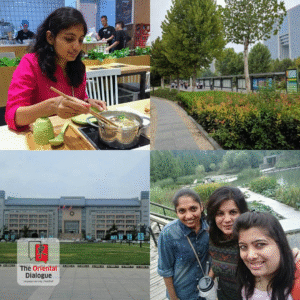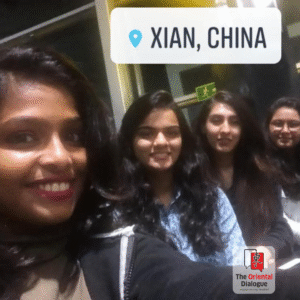Imagine stepping off a plane into a world that feels both foreign and deeply familiar – not just a place to sleep, but a place to belong. Short-term exchange programs in East Asia, whether in China, Japan, South Korea, Taiwan, or Hong Kong, can transform how you understand the world. But when these programs include immersive homestays, they become something more than an academic trip: they become a life-changing cultural journey.
Here’s how you and your peers can gain not just a global edge, but a genuine sense of home, even when you’re thousands of miles away.
Maximizing Cultural and Language Immersion: The Homestay Advantage
Living with a local family is the most powerful way to experience a country from within. In East Asia, homestays are not just about accommodation – they’re a bridge to everyday life.
Why Homestays in China Are Exceptional
- Some Mandarin programs – including those run by top Chinese universities – explicitly include homestays, allowing students to live as locals do.
- Unlike dorms or luxury apartments, homestays help you build real relationships, understand local customs, and practice Mandarin in your daily life.
- For instance, the Jinhua Homestay Project, run by the Jinhua Municipal People’s Government, invites overseas students to stay in rural villages for about three weeks, entirely funded.
- Participants live with host families in historic villages, where they engage in traditional crafts like calligraphy, tofu-making, Wu opera, paper cutting, and even pottery.
- They also help map ancient village architecture, interview villagers, and brainstorm ways to preserve and promote this cultural heritage.
- One highlight is Suoyuan Village in Jinhua – with its carved wood architecture, ancestral halls, and a serene village layout that feels lifted from a painting.
Short-Term Exchange: Your Jump-Start to Global Exposure
Exchange programs of a few weeks to a semester can turn into some of the most formative experiences of your life – academically, socially, and personally.
A Closer Look at Our Students’ Journeys
 Jinhua, Zhejiang
Jinhua, Zhejiang
Twelve of our students joined the Jinhua Homestay Project – a program designed to introduce them to village life in historic parts of Zhejiang province. These weren’t just tourist visits: students lived in villages like Suoyuan or Siping, staying with local families and immersing themselves in traditions that have survived centuries. The program is deeply cultural: students took part in Wu opera, learned calligraphy under masters, helped villagers document their history, and visited local pottery factories to try their hands at centuries-old crafts.
One of the most striking parts of the experience was how the students discovered the unexpected modernity in these rural places. While exploring Tantou village in Wuyi County (part of Jinhua), some were surprised to find cozy coffee shops, bookstores, and art galleries – a blend of tradition and contemporary culture. Over six days, they wove deep people-to-people ties, guided in part by stories of the Doolittle Raid (a historic link between China and the U.S.) that formed a symbolic backbone of the experience.
Shanghai – SUFE
Two of our students ventured to Shanghai University of Finance and Economics (SUFE). While this may not have been a village homestay, their experience was no less transformative. Exchange students at SUFE live in on-campus shared apartments – fully furnished, with private bedrooms, modern facilities, and a supportive international community.
Through SUFE’s International Cultural Exchange School, they were welcomed with orientation, Chinese-language resources, and cultural integration programs. Living in the heart of Shanghai allowed them to experience China’s economic dynamism firsthand – the skyline, the finance ecosystem, and a fast-moving urban culture.
Xi’an University
One of our students chose a deeply immersive route – Xi’an: a homestay with a carefully selected local family via a program like LTL (Live The Language), which specializes in pairing students with host families for Mandarin learning.
In Xi’an, you don’t just learn in the classroom – you eat in the same kitchen as your hosts, help them with household routines, and celebrate weekends together. Meals are often home-cooked, and over time, you become part of the family’s rhythm. LTL guarantees two meals a day, weekly social events, and no hidden fees.
Through this arrangement, students build deep trust, pick up the language naturally, and absorb cultural nuances that you simply can’t get from a dorm or tourist stay.
 Learning, Growing, Connecting: Why This Matters for Your Future
Learning, Growing, Connecting: Why This Matters for Your Future
- Language Acceleration: When you speak Mandarin daily with your host, your learning sky-rockets. You understand tones, slang, and context in a way classroom only study can’t replicate.
- Cultural Fluency: From festivals to family rituals, local cooking to calligraphy, homestays make you part of traditions – not just a visitor.
- Authentic Relationships: Staying with a local host means forming friendships that go deep. You don’t just make acquaintances; you gain a second family.
- Global Resume, Local Heart: Employers and universities love candidates who have lived abroad – but when you’ve also contributed to local communities and cultural preservation, you bring something truly exceptional.
- Personal Growth: Living away from home, in a different culture and language, builds resilience, empathy, and independence. You return not just with global experiences, but with self-confidence.
Short-term exchange programs in East Asia, especially those that offer homestays, aren’t just travel or study – they’re a journey into a different way of living. For our students, whether in the peaceful ancient villages of Jinhua, the bustling financial heart of Shanghai, or the storied walls of Xi’an, these experiences weren’t simply brief trips; they were turning points.
If you’re looking to expand your worldview, deepen your language skills, and build meaningful global connections, a homestay based exchange program could be one of the most rewarding chapters of your life. Let the world become your second home.




